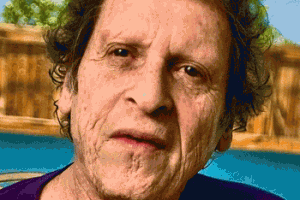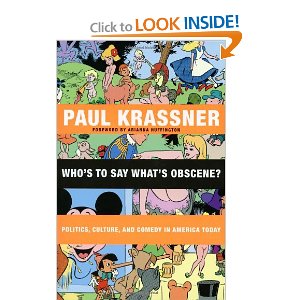
The Yippies and the Occupiers
By Paul Krassner
As a co-founder of the Yippies (Youth International Party) known for demonstrating against the Vietnam War at the 1968 Democratic convention in Chicago–I find myself comparing and contrasting the Yippies and the Occupy Wall Street protesters.
We had to perform stunts to get media coverage of our cause, so a group of us went to the Stock Market, upstairs to the balcony, and threw $200 worth of singles onto the floor below, watching the gang of manic brokers suddenly morph from yelling “Pork Bellies” into “Diving for Dollars.” Then we held a press conference outside, explaining the connection between capitalism and the war.
Now, a particular placard, “Wall Street Is War Street,” gives me a sense of continuity. Another anonymous Occupier spokesperson carried a poster with a touch of dark humor: “I am an immigrant. I came here to take your job. But you don¹t have one.”
By the sheer power of numbers without the necessity of stunts, the Occupiers have broadened public awareness about the economic injustice perpetuated by corporations without compassion conspiring with government corruption resulting in immeasurable suffering.
NPR waited until eleven days of Occupy Wall Street had passed before reporting its existence. The executive news editor explained that the Occupiers “did not involve large numbers of people” (actually, there were already several hundred), no “prominent people” showed up (thus ignoring Michael Moore and Susan Sarandon), the lack of “a great disruption” (the police pepper-spraying protesters trapped in a cage of orange netting finally met that need), “or an especially clear objective” (oh, right, like all those flip-floppy pandering politicians whose clear objective is to get elected).
The Occupiers appear to be a leaderless community (you can't name one; not yet, anyway (whereas Abbie Hoffman, Jerry Rubin and I served as spokespeople for the Yippies). We had media contacts and knew how to speak in sound bytes. If we gave good quote, they gave free publicity for upcoming demonstrations. It was mutual manipulation.
During an interview with Abbie and me for the CBS Evening News, taped at his apartment, Abbie paraphrased Che Guevara and said, “I'm prepared to win or die.” However, that never got on the air. When the reporter asked me, “What do the Yippies actually plan to do in Chicago?” I smiled at her and said, “You think I'm gonna tell you?” That portion of my answer was used to end Walter Cronkite's segment on the Yippies, but my follow-up sentence–“The first thing we're gonna do is put truth serum in the reporters' drinks”–was omitted. They had beaten me at my own game.
Inspired by the Yippies attempt to levitate the Pentagon, Aron Kay wanted to get fellow Occupiers to levitate Wall Street, to no avail. Similarly, inspired by the Yippies nomination of a pig for president, Michael Dare tried unsuccessfully to persuade fellow protesters at Occupy Seattle to carry out his notion that, “If corporations are people, let's run one for president.” I offered myself as Secretary of Greed.
The evolution of technology has changed the way protests are organized and carried out. The Yippies had to use messy mimeograph machines to print out flyers that had to be stuffed into envelopes, addressed, stamped and mailed. The Internet enables Occupiers to inexpensively reach countless people immediately. When the Yippies were being tear-gassed, and beaten sadistically and indiscriminately, we chanted, “The whole world is watching!”
But when a bloodbath was expected to happen if the New York police forced the Occupiers out of the park‹and then that didn¹t happen‹Michael Moore asked a cop, “Why don¹t you think the eviction happened?” The reply: “Because the mayor's afraid of YouTube.”
The Yippies were countercultural, an amalgam of stoned hippies and straight politicos. And, although the Occupiers are essentially mainstream, their demonization by reactionary pundits has been providing a replay performance of the Dinosaur Follies. Bill O'Reilly called them “drug-trafficking crackheads” and “violent America-hating anarchists.” Ann Coulter referred to them as mobs of “tattooed, bodypierced, sunken-chested 19-year-olds getting in fights with the police for fun.” Glenn Beck warned that they “will come for you and drag you into the streets and kill you.” Rush Limbaugh labeled them “dumbed down” and “propagandized” and asked a rhetorical question reeking with layers of irony: “Whatever happened to the 1960's, “Question Authority?” Limbaugh is like a castrated canine that is still busy humping the living-room sofa.I'll conclude here with a little gift for the infamous 1% in the form of what could well become a right-wing riddle. What do corporations and fetuses have in common? And the answer is: They¹re both persons.

Paul Krassner's latest book is Who's to Say What¹s Obscene: Politics, Culture and Comedy in America Today.
Phi Beta Iota: The above book, normally retailing for $16.95, is selling for $2.41 at Amazon–a better bargain in hard-copy non-fiction reading does not exist. Thomas Jefferson was a counter-cultural icon, along with many of the founding fathers. Cf. Counterculture Through the Ages: From Abraham to Acid House (2005), list price is $17, on sale at Amazon for $11.09.



